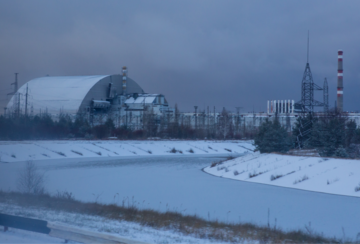News

Ethnographer and APARC Postdoctoral Fellow Mary-Collier Wilks unveils how distinct development narratives shape the dynamics of aid chains and international organizations’ delivery of services in Southeast Asia.

On April 6, 2022, Silkroad will be performing at Stanford University.
The Stanford Internet Observatory and the Trust and Safety Foundation will host a two-day conference focusing on cutting-edge research in trust and safety for those in academia, industry, civil society, and government.

On March 15, as the Russia-Ukraine war neared the three-week mark, Brookings experts held a discussion on developments in the conflict so far and what might be coming.

Analyzing data from 191 World Health Organization member countries, a new study from APARC’s Karen Eggleston indicates that strengthening the health workforce is an urgent task in the post-COVID era critical to achieving health-related Sustainable Development Goals and long-term improvement in health outcomes, especially for low- and lower-middle-income countries.

Not much happened after India’s accidental cruise missile launch into Pakistan—this time.
India accidentally fired a cruise missile into Pakistan on March 9, 2022. The missile was not armed and no lives were lost. Both sides projected calm in the incident’s aftermath. Still, the incident raises questions about the safety of India’s cruise missile systems, especially given the real risk of accidental escalation between nuclear-armed adversaries.

Kathryn Stoner is the recipient of the third annual book prize of the Fletcher U.S.-Russia Relations Initiative, presented by the Russia and Eurasia Program at The Fletcher School of Law and Diplomacy at Tufts University. The prize is for the outstanding work in her latest book, Russia Resurrected: Its Power and Purpose in a New Global Order (2021).
SHP's Paul Wise returns from Poland where he was helping coordinate the evacuation of child cancer patients from Ukraine in an effort to get them to appropriate medical care facilities in other countries.

APARC Visiting Scholar James Millward discusses PRC ethnicity policy, China's crackdown on Uyghur Muslims and other minorities in Xinjiang province, and the implications of the Xinjiang crisis for U.S. China strategy and China's international relations.
Michelle Mello and Stanford colleagues win an annual award by the ABIM Foundation for a commentary that argued academics have an obligation to speak out against medical views that are contrary to science.

Governor Seitaro Hattori, Ambassador Rahm Emanuel, and Principal Officer John C. Taylor congratulate students in inaugural class.


Adversity and Opportunity—The Pandemic’s Paradoxical Effect on Child Health and Well-Being
In this JAMA Pediatrics commentary, Paul Wise and Lisa Chamberlain write the COVID-19 pandemic has triggered emergency policy responses that have cut through years of muddled inaction on issues critical to child health and well-being.

A week before Russian President Vladimir Putin invaded Ukraine on Feb. 24, unleashing the biggest military operation in Europe since World War II, three experts on Russia were interviewed on Zoom and email by Carol Giacomo, chief editor of Arms Control Today, about the origins of the crisis and what an eventual solution might involve.
Prisons and jails are high-risk environments for the spread of COVID-19, but many California prison staff are declining to be vaccinated even as new variants threaten another U.S. surge.

The Program on Arab Reform and Democracy (ARD) at CDDRL is pleased to announce the launch of Mofeed Digest, a periodic recap of the most important scholarly and policy publications, reports, and articles investigating the impact of the COVID-19 pandemic on the politics, economies, and societies of the Arab world.

A few possible reasons: the United States has been helping Ukraine strengthen its cyber infrastructure, U.S. cyber offensive forces may have been disrupting Russian attacks against Ukraine, and the Russians may not be capable of conducting such a large-scale attack.

Collaborating Against Carbon: Stanford and Peking University Partner on Decarbonization Research
A report on China and the United States' decarbonization and carbon neutrality proposes areas of collaboration on climate change action, global sustainable finance, and corporate climate pledges. The report is the product of roundtables with participants from the Stanford Precourt Institute for Energy, SCPKU, APARC's China Program, and Peking University’s Institute of Energy.
The World’s Most Dangerous Man
Putin’s Unconstrained Power Over Russia’s Nuclear Arsenal. Putin has turned his government into a personalist regime: a system in which he monopolizes meaningful authority.
In 2010, the world was introduced to Stuxnet, a sophisticated malware developed by Israel and the United States that successfully targeted and damaged the Iranian uranium enrichment plant in Natanz. Named “the world's first digital weapon,” Stuxnet changed the way the global security communities perceived the range of cyber threats.

A new video curriculum series is released.
The truth about nuclear deterrence
Putin might well believe that a world without Russia in its rightful position of power is not worth existing. We can’t be sure of what Putin is thinking, or whether his decision making is compromised – all we can do is prepare for the possibility of Russia’s use of nuclear weapons.

New Books Network Podcast: "Invisible China" with Author Scott Rozelle and Host Peter Lorentzen
Scott Rozelle joins Peter Lorentzen on this podcast episode discussing Scott Rozelle and Natalie Hell's new book, Invisible China: How the Urban-Rural Divide Threatens China's Rise.
Tacit rules to avoid a NATO-Russia war
While the United States and NATO have sided squarely with Ukraine, the victim of an unprovoked invasion by Russia, US and NATO officials have also made clear their desire to avoid a direct military clash with Russia.

Firing on civilian nuclear facilities is an unacceptable disregard for the rules of war that endangers the entire world, not just Ukraine.




![[Left to right]: Michael McFaul, Marshall Burke, Steven Pifer, Oriana Skylar Mastro, Didi Kuo, and Amichai Magen on stage.](https://fsi9-prod.s3.us-west-1.amazonaws.com/s3fs-public/styles/480x270/public/2024-10/fsi_reunion_2024_panel_hero.png?h=c4d9845d&itok=s9RgEIqP)







